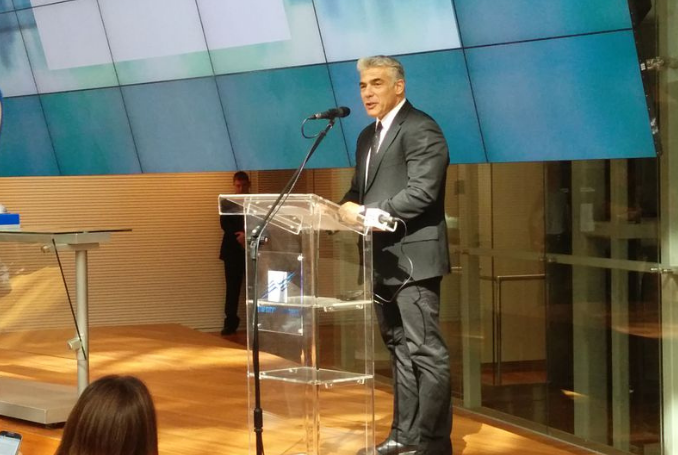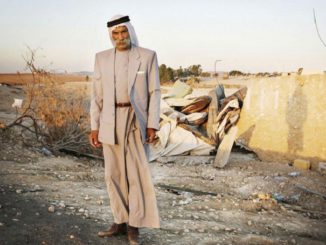
On February 1, 2022, Amnesty International, one of the world’s largest and most well-respected human rights organizations, released a monumental report stating that Israel is actively committing Apartheid against Palestinians—a crime against humanity.
As has become almost ritual, Amnesty’s report—based on four years of intensive investigation and decades of field research on the topic—came under immediate fire from the Israeli government and lobbies who branded it “antisemitic”. Israel’s Foreign Minister Yair Lapid stated that the report pours “fuel onto the fire of antisemitism” while the American Israel Public Affairs Committee and the notorious Anti-Defamation League claimed the report “fuels […] antisemites around the world”. Similar claims have been echoed by countless pro-Israeli factions globally.
Antisemitism is a real and imminent threat to Jews around the world. It has been for centuries. Like any form of racism, antisemitism is an inexcusable crime—a legal, moral, and ethical abomination. Antisemitism must be recognized, combatted, and condemned.
It is for precisely this reason that one must oppose, deprecate, and denounce the wanton smears of antisemitism Israel and its allies have laid forth. Such arbitrary use of the term “antisemitism” endangers the legitimate assertions of those suffering the horrors of antisemitism. Israel—in contrast to Amnesty’s report—has provided no evidence to support its slurs. Nothing in Amnesty’s report—its language, arguments, or sentiment—resembles antisemitism in any way. Rather, Israel has shouted down the report, not dealing with its details, research, facts, or findings, but instead slandering its messenger.
For too long, Israel has hijacked and abused the horrific suffering of the world’s Jewry to deflect attention from its endless crimes and quell legitimate, impartial criticism of its government. Perhaps the greatest evidence of this lies in the words of Shulamit Aloni, winner of the Israel Prize and former Communications Minister and Education Minister of Israel. When questioned regarding the branding of Israel’s critics “antisemitic”, Aloni responded:
“It’s a trick, we always use it. When somebody from Europe is criticizing Israel then we bring up the Holocaust. When in this country [the US] somebody is criticizing Israel then they are antisemitic […] It’s very easy to blame people who criticise certain acts of the Israeli government as antisemitic and to bring up the Holocaust and the suffering of the Jewish people […] that justifies everything we do to the Palestinians.”
This despicable practice threatens to undermine and delegitimize the authentic Jewish struggle against antisemitism—a struggle that has endured for centuries and been echoed, embraced, and supported by Palestinians worldwide.
Israel’s desperate cries of “antisemitism” are often premised on the fallacy that Israel represents Judaism and its followers as a whole. It is only through this erroneous conflation of a government—a “nation-state” in ex-Prime Minister Benjamin Netanyahu’s words—with one of the world’s oldest faiths, that thoroughly evidenced third-party reports can be so peremptorily deemed “antisemitic”. The very historical timeline of both Israel and Judaism rejects such a conflation. Put simply, Israel is a nation born of Zionism (a European imperialist, settler-colonial ideology) and the ethnic cleansing of hundreds of thousands—if not millions—of Palestinians in 1947-48; Judaism, a religion that has existed and thrived for countless millennia.
Theodore Herzl, celebrated in the Israeli Declaration of Independence as “the spiritual father of the Jewish state”, was himself an areligious Jew, but an ardent Zionist. A critical difference. Herzl’s explicit desire in establishing the state of Israel was to act “as representatives of Western civilization and bring cleanliness, order, and well-established customs to this plague-ridden, blighted corner of the Orient [i.e., Palestine]”. At work then, as much as now, were not the peaceful principles of Judaism, but the settler-colonial philosophies of Zionism.
Edwin Montagu (1879-1924), the British government’s only Jewish member in 1917—the year Zionist aims were first legitimized through the infamous Balfour Declaration—denounced the very notion of establishing the state of Israel as an “antisemitic” ploy. Montagu, like countless Jews then and at present, saw Zionism as a “mischievous political creed”. This same Zionist movement, and the state it birthed with an “iron wall” of violent British-backed imperial domination, now point the finger of antisemitism at any who dare recognize, criticize, or oppose its crimes. It is hence essential—particularly when assessing Israel’s disingenuous claims of antisemitism—to draw a clear distinction between Zionism and Judaism and Jews and Israel.
If antisemitism were truly the basis of Amnesty’s report or criticism of Israel more broadly, how have Israeli and Jewish human-rights groups such as B’Tselem, Yesh Din, HaMoked and Jewish Voice for Peace, reached the same conclusions? Just two days after Amnesty released its historic report, 13 major Israeli human rights organizations issued a statement welcoming and defending the report, while condemning the “unbearable, inaccurate, and instrumentalized use to which the antisemitism accusation is lodged for political ends, in order to avoid debate about Israel’s oppressive policies against the Palestinians”.
Even Ilan Baruch and Alon Liel, former Israeli ambassadors to South Africa—the birthplace of Apartheid—deemed Israel an apartheid regime. In 1961, Hendrik Verwoerd, then South African Prime Minister and the architect of Apartheid, declared, “Israel, like South Africa, is an apartheid state”. Numerous Holocaust survivors too, have accused Israel of Apartheid and compared its rule and policies to those of the Nazis.
Palestinian voices are most important. Palestinians are the land’s native inhabitants: its “indigenous people”, in the words of Ze’ev Jabotisnky, founder of Revisionist Zionism. For over 73 years, Palestinians have suffered through and testified to what organizations such as Amnesty have only now reported. Yet Israel has branded the Palestinians, arguably most of all, antisemitic. A single piece of evidence is needed to dispel such a myth, one often neglected and forgotten: Palestinians are a Semitic people. However, when the Israeli lobby deems even holocaust survivors antisemitic, this modest fact is likely of little import. Undoubtedly, Palestinians combat Israeli Apartheid, not for the race or faith of their oppressor, but rather the very fact of their oppression.
Designating legitimate criticism of Israel “antisemitic”—as the International Holocaust Remembrance Alliance states in its definition of antisemitism—is ironically antisemitic. Such a designation denies, undermines, and suppresses the rights and opinions of countless non-Zionist Jews, including Israelis, who valiantly risk ostracization and brave the wrath of the malevolent Israeli lobby, to criticize Israel. More egregiously, it implicates and entangles the world Jewry in Israel’s crimes. None of sound mind and heart—especially the Palestinians—hold Judaism and/or its followers accountable for the crimes of a state to whose barracks many Jews have never visited, let alone supported.
If we truly wish to combat antisemitism, we must first recognize and accept the diversity of the Jewish community and act meticulously to avoid the perilous generalizations and unfounded conflations which have formed the backbone of antisemitic sentiment for decades. Such conflations have long been employed by antisemites and those who abuse the suffering and struggle of the Jewish people to conceal their heinous crimes. To effect change, “we”, as a global community of conscience, morality, and equality, must band together to protect and amplify the voices of those risking their lives in the pursuit of justice.
In our collective fight against antisemitism, we must reject the vile Zionist equation of Judaism with Israel. We must ensure that the Israeli lobby’s grave calumny is not allowed to hinder the gallant efforts of those Palestinians, Jews, and non-Jews, shedding light on this Apartheid state’s many atrocities.

– Zubayr Alikhan is a student and writer whose primary focus is on the pursuit of justice with a particular emphasis on international human rights, anti-colonial resistance, and legal accountability. He writes on issues highlighting oppression and tyranny around the world. He contributed this article to The Palestine Chronicle.







